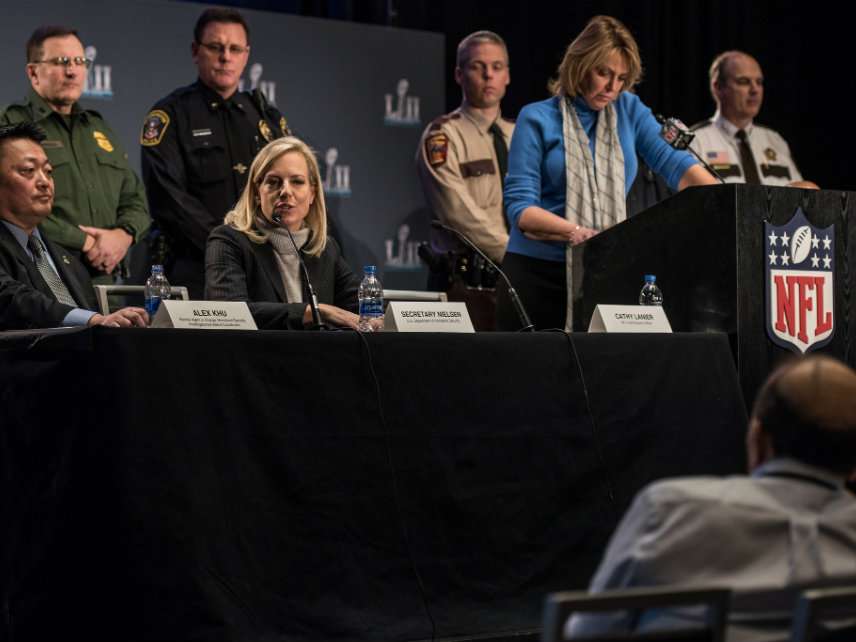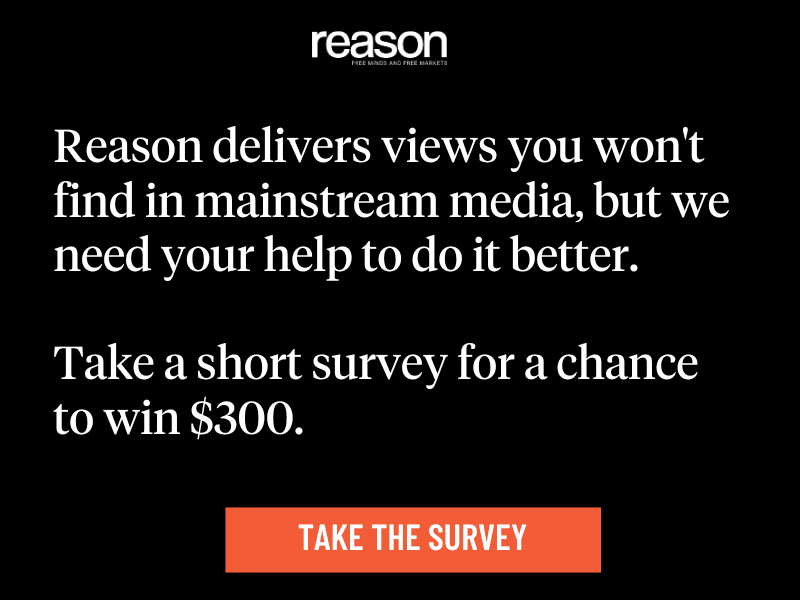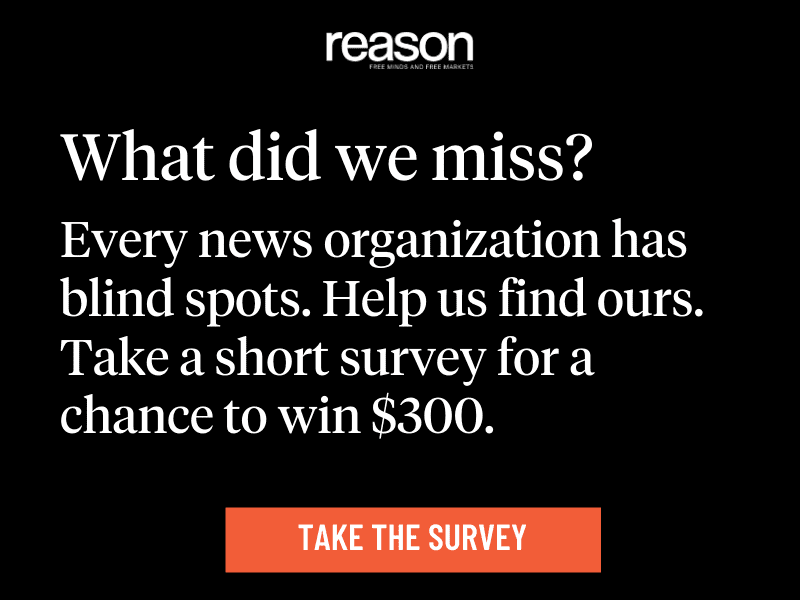Super Bowl Sex Trafficking Myth Gives Good Cover for Federal Security Theater
Minneapolis is being transformed into a police state.

Guests at this year's Super Bowl game in Minneapolis can expect cops, checkpoints, and security theater everywhere, in no small part thanks to the myth that the Super Bowl is a mass sex-trafficking event.
Dan Conboy, a police lieutenant in the Minnesapolis suburb of Edina, said cops from all over the area would be focused on sex trafficking this weekend, with help from federal authorities.
Their focus "won't just be hotels, but also the airport, clubs and bars–any area where large groups will congregate," reported the Minneapolis Sun Current.
In other words, "sex trafficking" gives federal and local authorities an excuse for posting police anywhere and everywhere people are gathering—and for enlisting citizens as spies, too.
"This year's Super Bowl will have the greatest deployment of federal resources yet, due to the city's relatively small police department," reported KTSA Minneapolis. Around 1,700 federal agents are expected in town, along with state and local police, the Minnesota National Guard, and officers from more than 60 police departments around Minnesota. In addition, "a 10,000-strong volunteer force has been trained to spot suspicious activity" around town.
"Minneapolis residents and visitors can anticipate increased police patrols, bomb-sniffing dogs, officers clad in tactical gear and helicopters overhead," KTSA noted.
There will also be motion detectors, metal detectors, mobile command centers, the deployment of human trafficking and counterfeit merchandise teams as well as high-resolution security cameras around the city, according to Alex Khu, special agent in charge of Homeland Security Investigations in Minnesota and the federal coordinator for this year's Super Bowl.
In Super Bowl messaging from Homeland Security and other federal agencies, mentions of potential terrorists or drug dealers were eclipsed by warnings of intellectual property theft and an influx of human traffickers. We're transforming Minneapolis into a police state to enforce copyright law against small-time street vendors and crack down on an issue that almost everyone admits is imaginary.
After years of widespread hype about some supposed link between the Super Bowl and incresed sex trafficking, the past few have seen prolific pushback against this urban legend.
Sure, some folks have been doing this for a while (including us). "Despite massive media attention, law enforcement measures and efforts by prostitution abolitionist groups, there is no empirical evidence that trafficking for prostitution increases around large sporting events," found the Global Alliance Against Traffic in Women in a 2011 report.
By now, however, mainstream news outlets from The New York Times to Sports Illustrated have fact-checked the idea that sex-trafficking spikes around the Super Bowl (or other big sporting events) and found it lacking. Academic researchers found no support for it. Even crony charity groups that spread all sorts of sex-trafficking misinformation found this myth too easily debunkable to keep repeating.
Pretty much the only folks who haven't gotten the memo that Super Bowl sex-trafficking panic is bunk are the law-enforcement agents who benefit from promoting it. Keeping vigilant for a nonexistent sex-trafficking spike during the Super Bowl nets cops some easy overtime hours. And it allows police to conduct old-fashioned prostitution stings under the auspice of "human trafficking intervention," thereby reaping all sorts of accolades—and collecting all sorts of money—for arresting adults attempting to have consensual sex.
The phantom Super Bowl trafficking menace has been big in recent Immigration and Customs Enforcement (ICE) propaganda. The agency has been promoting its game-time shenanigans with a flashy new web campaign that even comes with its own hashtag (#ICEatSB52).
ICE's Homeland Security Investigations (HSI) "will be playing its best defense to protect the thousands of fans who will be in Minneapolis," working "with its law enforcement partners to …. target criminal enterprises that exploit the Super Bowl to promote human trafficking," the website read least week, when Vice first reported on ICE's efforts and pushed back against its trafficking narrative.
Since that time, the language about human trafficking has been removed from the ICE Super Bowl page. But the agency is still hyping the Super Bowl sex-trafficking myth on Twitter.
ICE HSI works with its law enforcement partners to provide safety & security to those in attendance and target criminal enterprises that exploit the @SuperBowl to promote #humantrafficking and the illegal manufacturing and sale of counterfeit goods #SBLII https://t.co/BOe2awug60 pic.twitter.com/zTejDSALvn
— ICE (@ICEgov) January 23, 2018
And federal agencies including ICE have been planning for this nonexistent threat since 2016. Since that summer, "Minnesota community leaders from the public, private, and non-profit sector joined with local and federal law enforcement agencies to… address the issue of sex trafficking at this year's Super Bowl," the FBI stated.
Mostly, "addressing the issue" has meant producing and promoting propaganda videos that play on people's rightful horror at human trafficking to sell these agencies' surveillance and arrest agenda.
The feds were busy promoting this notion in the lead-up to the Super Bowl, too. Earlier this month, the U.S. Attorney's Office for the Eastern District of Pennsylvania put out a statement asserting that "large events like the NFC Championship football game that draw out-of-town crowds also lure sex traffickers." It asked Philly residents to "to help law enforcement identify predators and victims of sex trafficking" by reporting any suspicious activity to authorities.
Meanwhile, police in Minneapolis and nearby areas have been conducting their own propaganda campaigns. Officers from around the area are taking part in the Minnesota Human Trafficking Task Force, "which is proactively working against prostitution and human trafficking during the Super Bowl," according to the Sun Current.
Even police willing to admit there's no evidence for a surge in sex trafficking around the Super Bowl are still planning on using the game as an excuse to conduct prostitution stings. Minneapolis Police Department (MPD) Sgt. Grant Snyder explained the theory: More men than usual may be looking to pay for sex this weekend, and even though most of the people they'll approach will be consenting adult sex workers, someone getting paid for sex could be a trafficking victim. Therefore—rather than rescuing victims, or finding the people exploiting them—the police are going to arrest a tiny fraction of potential prostitution customers and publicly shame them. (It's the thought that counts, right?)
For the 10 days leading up to the Super Bowl, MPD has been working with other agencies to conduct "Operation Guardian Angel," in which police post online ads posing as adult sex workers and arrest those they lure to meet them. "People who are coming to Minneapolis and are thinking about illegally buying sex know there's a really good chance they're talking to law enforcement, that we've infiltrated and embedded ourselves in the networks that are trying to sell sex," Minneapolis City Council Member Steve Fletcher said.




Show Comments (46)